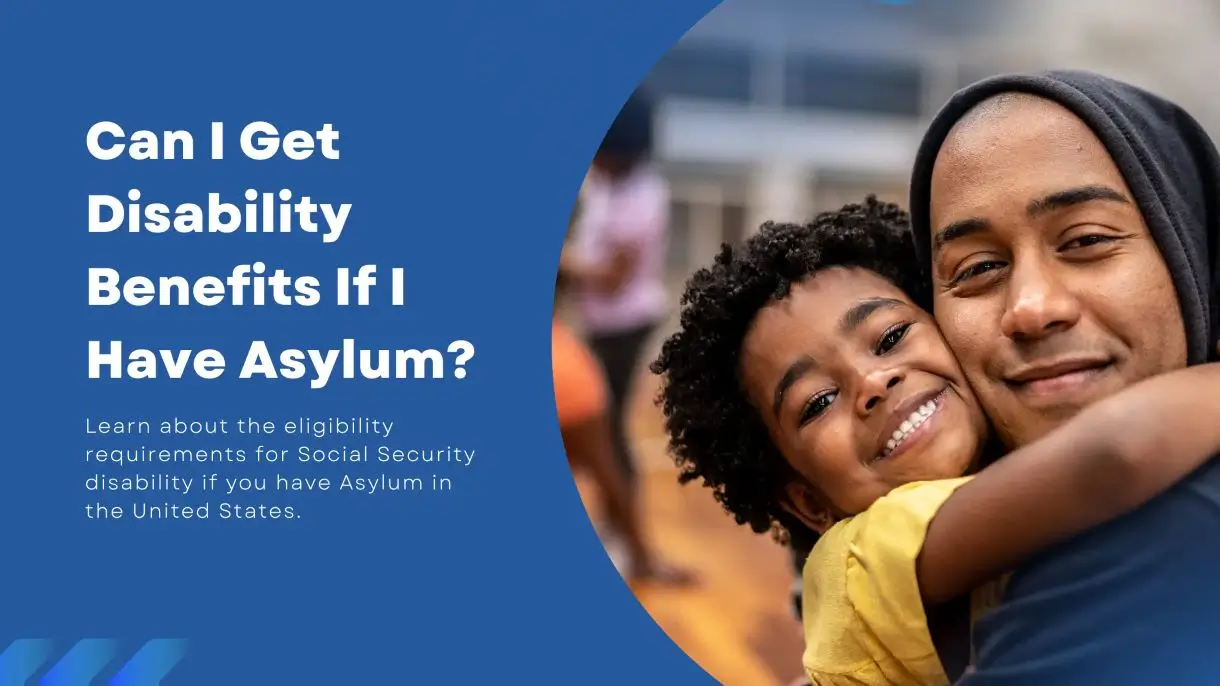Recently, we received a question about qualifying for Social Security disability as a noncitizen. Here’s what the question says: “I have definite asylum in the United States and worked for 16 years paying taxes. I am wondering if I qualify for SSDI if I’m disabled, even though I don’t have a Green Card?” This is a surprisingly difficult question to answer without knowing your work history, age and other key eligibility factors. So, let’s start there and find out if asylum seekers in the United States can qualify for disability benefits.
Ready to see if you may qualify? Click here to get a FREE, no-obligation consultation before starting your claim.
Can Non-Citizens Granted Asylum Receive SSD Benefits?
There are many complex laws that determine which federal programs can provide benefits for resident noncitizens. That’s most likely why you mentioned not having a Green Card, but having worked and paid taxes. Many lawful immigrants choose to apply for a Permanent Resident Card (or “Green Card”) through U.S. Citizenship and Immigration Services. Once approved, every Green Card holder has the right to work and live here as a permanent legal resident alien. Legal resident aliens can also use Green Cards to apply for a state-issued driver’s license and Social Security card.
However, not all legal immigrants need Green Cards to work, drive and live inside our great country. Anyone granted asylum is also authorized to work in the U.S., with or without an Employment Authorization Document (EAD). Alien residents with asylum may also apply for unrestricted Social Security cards and numbers for work purposes. You must also have a valid Social Security number and live in the U.S. to apply for disability benefits.
Eligibility Requirements for Non-Citizens to Qualify for Social Security Disability Benefits
The requirements for being able to receive Social Security Disability benefits as a non-citizen are fairly expansive and vary depending on which program you’re applying for: SSI or SSDI.
For SSI, in addition to having asylum and meeting the standard eligibility requirements for SSI benefits, you need to be or have one of the following:
- Lawful residence in the US on August 22, 1996, and either blind or disabled
- Already receiving SSI on August 22, 1996, and lawfully residing in the US
- Lawful admission for permanent residence with at least 40 work credits, including spousal or parental credits
- Veteran, active duty member of the Armed Forces, or spouse/dependent of one
- Victim of human trafficking
Disabled immigrants with asylum are eligible for SSI benefits for a total of 7 years. After that, you can file for an extension if you are in the process of seeking naturalization, otherwise you will lose your benefits.
Other Things That Determine When Asylum Holders Can Get Disability
So, you say you worked and paid taxes for 16 years, but became disabled. This implies you have a valid Social Security number, but we don’t know which type of taxes you were paying. Only one type matters for Social Security disability applicants: FICA taxes deducted from every paycheck you earned while working.
Let’s assume you did, in fact, pay FICA (otherwise known as Social Security taxes). That’s another step towards qualifying for Social Security disability. How long have you been unable to work? Once you stop working for 60 months (five years), then your Social Security Disability Insurance (SSDI) policy automatically lapses. Let’s say your disability started within the last five years. That means you technically still have coverage, provided you haven’t yet reached full retirement age (FRA).
Unfortunately, you cannot apply for disability benefits after your 66th birthday. You also cannot qualify if you’re already getting some Social Security benefits. (This includes things like early retirement or survivor’s benefits, for example.) Then, there’s one last thing: Does your condition meet the SSA’s internal disability requirements?
Why “Disabled” Doesn’t Always Mean What You Think It Means
The SSA screens claims to ensure each applicant’s mental or physical condition meets their internal definition of “disabled.” In other words, a doctor saying you’re disabled won’t automatically qualify you for disability. Instead, the SSA looks at recent medical evidence to make their decision. If you don’t have a doctor currently treating you, they’ll schedule a DDS exam that you absolutely must attend.
This is so the SSA doctors in your state can independently confirm your diagnosis. This helps the agency certify your health issues as medically eligible for disability. At this point, your asylum status doesn’t even matter. They just need to know if your condition(s) specifically forced you to stop working for at least one year. (Or that your condition should result in death, such as stage IV pancreatic cancer.)
Once you complete that exam and meet all non-medical requirements, then you officially qualify for disability. Most people get an approval or denial letter by mail about 3-5 months after filing their disability claims.
Ready to see if you may qualify? Click here to get a FREE, no-obligation consultation before starting your claim.
Lori Polemenakos is Director of Consumer Content and SEO strategist for LeadingResponse, a legal marketing company. An award-winning journalist, writer and editor based in Dallas, Texas, she's produced articles for major brands such as Match.com, Yahoo!, MSN, AOL, Xfinity, Mail.com, and edited several published books. Since 2016, she's published hundreds of articles about Social Security disability, workers' compensation, veterans' benefits, personal injury, mass tort, auto accident claims, bankruptcy, employment law and other related legal issues.
